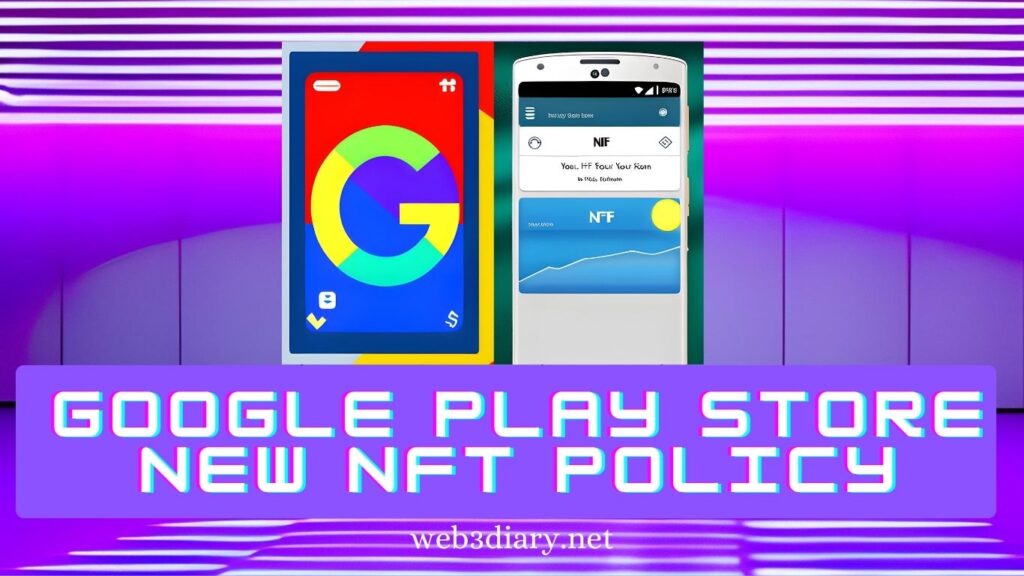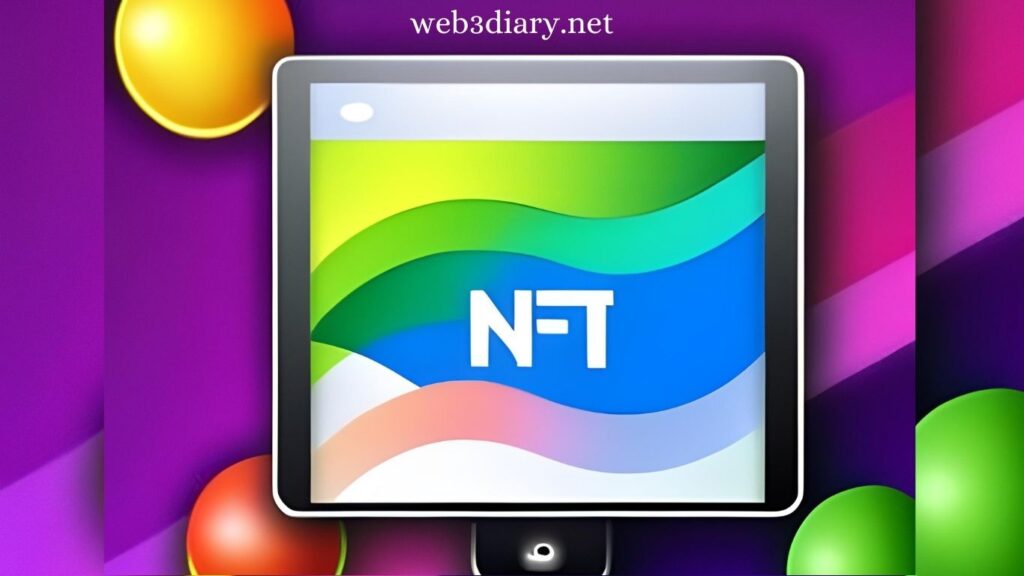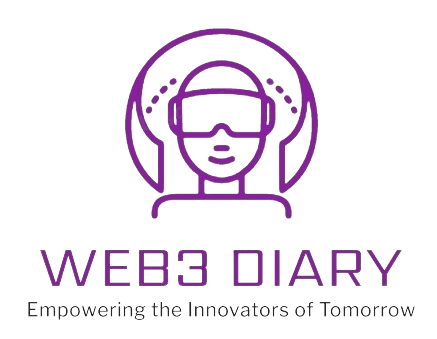Summary
Google Introduces Google Play Store NFT Policy updates to accommodate blockchain technology and NFTs, fostering innovation and providing cutting-edge digital experiences to users across industries.

Introduction
The Google Play Store, one of the largest app marketplaces worldwide, has recognized the growing significance of blockchain technology and non-fungible tokens (NFTs) in the digital landscape. As a result, Google has recently introduced updates to its policies to accommodate the evolving blockchain ecosystem and allow NFT-related applications. This article delves into the Google Play Store NFT Policy, highlights the impact on blockchain-based apps, and addresses frequently asked questions regarding NFT games and blockchain integration.
Google Play Store NFT Policy Update for Blockchain

In a progressive move towards embracing blockchain innovation, the Google Play Store NFT Policy update that acknowledges and supports blockchain-based applications. This update signifies Google’s recognition of the potential and significance of blockchain technology in various industries, including finance, gaming, art, and more. By allowing blockchain-based apps, Google Play Store aims to foster innovation and provide users with access to cutting-edge digital experiences.
Google Play Store NFT Policy
As part of the policy update, the Google Play Store has explicitly addressed the inclusion of NFTs. The NFT policy ensures that developers can create and distribute applications that incorporate NFTs, providing users with the ability to own and trade unique digital assets securely. This policy update opens up new possibilities for artists, collectors, and enthusiasts to explore the world of NFTs within the Google Play Store ecosystem.
Google Allows NFT Games and Blockchain-Based Apps

With the policy updates, Google Allows NFT developers to create and publish NFT games and blockchain-based applications. This marks a significant milestone in the mainstream adoption of NFTs, as users can now enjoy a variety of interactive and innovative experiences powered by blockchain technology. From play-to-earn games that enable users to earn digital assets to applications that facilitate the exchange of tokenized assets, the Google Play Store is embracing the opportunities presented by the blockchain revolution.
Google Play Store Blockchain Updates
To support the growing demand for blockchain-based apps, the Google Play Store Blockchain Updates will continue to provide regular updates to its policies. These updates will align with the latest advancements in blockchain technology, ensuring a secure and user-friendly experience for both developers and users. By staying up to date with the evolving blockchain landscape, Google Play Store aims to foster a thriving ecosystem of blockchain applications and contribute to the broader adoption of this transformative technology.
The Impact on Blockchain-Based Apps
The policy update by the Google Play Store has a profound impact on the development and distribution of blockchain-based apps. With the ability to create applications that leverage blockchain technology, developers can now explore innovative use cases across various industries. Finance applications can provide decentralized financial services, gaming apps can introduce play-to-earn mechanics and digital asset ownership, and art platforms can enable the tokenization and trading of digital artworks. These policy updates unlock new opportunities for developers and users alike, revolutionizing the digital landscape.
Google Play announced a big shift in policy today, allowing developers to incorporate digital assets such as NFTs into their apps and games in the store.@tobyleah reports:https://t.co/6HHK4tpCJV
— CoinDesk (@CoinDesk) July 12, 2023
Addressing User Privacy and Security
As blockchain-based apps become more prevalent on the Google Play Store, ensuring user privacy and security is of utmost importance. Google has put in place stringent privacy policies and security measures to safeguard user data. Developers are required to adhere to these policies, ensuring that user information remains protected. By prioritizing privacy and security, the Google Play Store aims to create a trustworthy environment for users to engage with blockchain-based apps confidently.
The Rise of Play-to-Earn Games
One significant trend in the blockchain gaming industry is the emergence of play-to-earn games. These games utilize blockchain technology to offer players the opportunity to earn digital assets by participating in gameplay and completing in-game tasks. With the policy updates, Google Play Store now supports play-to-earn games, allowing developers to create immersive gaming experiences where players can earn and own valuable digital assets. This innovative concept has the potential to revolutionize the gaming industry by providing economic opportunities and changing the way players interact with games.
The Benefits of Tokenized Assets
Tokenization of assets through blockchain technology brings numerous benefits to users. By representing assets as digital tokens on the blockchain, ownership and transfer become more efficient, transparent, and secure. This opens up new possibilities for fractional ownership, allowing individuals to invest in high-value assets that were previously inaccessible. Tokenized assets can include a wide range of items, such as virtual real estate, digital collectibles, art, and even real-world assets like real estate or stocks. The Google Play Store’s support for blockchain-based apps enables users to engage with and benefit from this tokenized economy.
Curbing Gambling-Related Concerns
To maintain the integrity of the platform, Google Play’s policy aligns with its stance on real-money gambling, games, and contests. Developers are prohibited from offering purchases that involve a chance to win assets of unknown real-world monetary value, including NFTs. By disallowing mechanisms like “loot boxes” or randomized blockchain-based items, Google Play ensures that users are not exposed to gambling-related risks or uncertainties when engaging with tokenized digital assets.
Empowering Developers and Boosting Industry Growth
Google Play recognizes that its success is intertwined with the success of its developer community. The policy update was developed in close consultation with app and game developers, reflecting their feedback and insights. By actively engaging with developers, Google Play aims to provide ongoing support for building sustainable businesses utilizing blockchain technology. This collaborative approach will help unlock new avenues for innovation, user engagement, and revenue generation within the blockchain ecosystem.
Looking Ahead: Future Opportunities and Industry Collaboration
Google Play’s commitment to blockchain technology extends beyond the recent policy update. The platform remains dedicated to understanding the challenges and opportunities faced by developers and seeks to enhance its support for blockchain-based app experiences. Future developments may include exploring secondary markets and fostering partnerships within the blockchain industry to further expand opportunities for developers and users alike. Google Play’s ongoing efforts reflect its dedication to driving innovation and embracing the potential of blockchain technology.
Expanding the Digital Art Market

The integration of NFTs and blockchain technology into the Google Play Store NFT Policy opens up exciting possibilities for the digital art market. Artists can create and sell unique digital artworks as NFTs, providing proof of ownership and authenticity on the blockchain. This new avenue empowers artists by granting them greater control over their creations and the potential for direct monetization. Additionally, art enthusiasts and collectors can discover, purchase, and trade digital artworks on platforms powered by blockchain technology, expanding the reach and accessibility of the digital art market.
Google Play Store NFT Policy update reflects the platform’s commitment to supporting developers in harnessing the potential of blockchain technology while maintaining user trust and safety. By fostering transparency, responsible practices, and user protection, Google Play enables the creation of immersive experiences with tokenized digital assets. As the industry evolves, Google Play’s collaboration with developers and exploration of new opportunities will pave the way for a vibrant and sustainable blockchain ecosystem. By embracing blockchain, Google Play continues to drive innovation, bringing more fun and delight to apps and games across its platform.
Frequently Asked Questions (FAQs)
Q1: Does Google Play allow NFT games?
A1: Yes, Google Play now allows the development and distribution of NFT games. This policy update enables users to explore and engage with unique and tradable in-game assets, enhancing the gaming experience.
Q2: Does Google Play allow Blockchain games?
A2: Absolutely! New Google Play Store NFT Policy welcomes blockchain games that leverage the capabilities of blockchain technology. These games offer players the opportunity to interact with decentralized systems, earn digital assets, and participate in a new era of gaming experiences.
Q3: Why Are Play-to-Earn Games Struggling So Much?
A3: Play-to-earn games face challenges related to scalability, user adoption, and regulatory frameworks. Issues such as high transaction fees and complex user interfaces have posed obstacles to mainstream acceptance. However, ongoing advancements in blockchain technology and ecosystem development are expected to address these challenges and pave the way for broader success.
Q4: What are the benefits of blockchain-based apps on the Google Play Store?
A4: Blockchain-based apps offer several benefits, including increased transparency, improved security, and decentralized ownership. These apps empower users by providing unique digital experiences and opportunities for value creation through tokenized assets and decentralized services.
Q5: How can developers get started with creating blockchain-based apps for the Google Play Store?
A5: Developers interested in creating blockchain-based apps for the Google Play Store can begin by familiarizing themselves with blockchain technology and its various use cases. They can explore blockchain development platforms, utilize smart contract frameworks, and leverage software development kits (SDKs) provided by blockchain networks. Additionally, staying updated with the Google Play Store’s policies and guidelines specific to blockchain integration is crucial.
In conclusion, the Google Play Store’s policy updates demonstrate its commitment to embracing blockchain innovation and supporting NFT-related applications. This forward-thinking approach opens doors for developers and users to explore the potential of blockchain technology within the realm of mobile applications. With the integration of blockchain-based apps and NFT games, the Google Play Store is shaping the future of digital experiences and fostering a more decentralized and inclusive digital ecosystem.
Q6: How to implement blockchain in Android?
A6: Implementing blockchain in an Android app involves several steps. It starts with understanding the fundamentals of blockchain technology and its potential use cases for the app. Developers can then select a suitable blockchain platform, design and develop smart contracts, integrate blockchain protocols and APIs into the app’s architecture, and ensure secure and efficient interactions with the blockchain network.
Q7: What apps are using blockchain technology?
A7: Many apps across various industries are utilizing blockchain technology. Examples include cryptocurrency wallets like Coinbase, decentralized finance (DeFi) platforms such as Uniswap, NFT marketplaces like OpenSea, supply chain management systems, voting platforms, and identity verification apps. The use of blockchain technology is expanding rapidly as more industries recognize its potential.
Q8: Which blockchain will Google use?
A8: Google Cloud partners with Tezos blockchain to bring web3 technology to its customers. Google Cloud has partnered with the Tezos Foundation to grow its web3 application development and provide new services for its customers, the companies announced on Wednesday.
.
Q9: Does Google Play allow blockchain games?
A9: Yes, with its updated policy, Google Play Store NFT Policy now allows developers to create and distribute blockchain games on the platform. The policy update aims to support innovative experiences and transparent transactions involving tokenized digital assets while ensuring user protection and responsible practices
.
Q10: How do I create a blockchain mobile app?
A10: Creating a blockchain mobile app requires a combination of blockchain development and mobile app development skills. The process involves defining the app’s purpose and functionality, selecting a suitable blockchain platform, designing and developing smart contracts or decentralized applications (DApps), integrating the blockchain network into the app, and thoroughly testing the app’s functionality and security.
